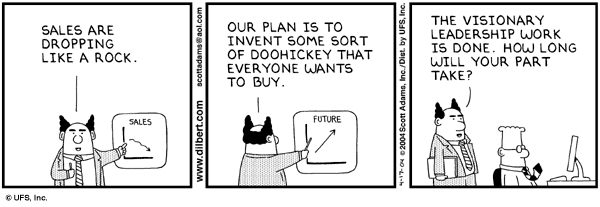9 things you need to do to be seen as a fair leader:
.
What makes a fair leader?
Being a fair leader is no easy task.
Albert Bernstein is a business consultant and a practicing psychotherapist with a knack for teasing out how fundamental human drives play out in the office.
He gives deep insight into why we behave the way we do in a work context and the hurdles we need to overcome to best get things accomplished.
Via Sacred Bull: The Inner Obstacles That Hold You Back at Work and How to Overcome Them:
Fairness is a damaging concept only when you’re thinking about other people being fair to you. When, however, you think about fairness in terms of how other people would like you to treat them, then fairness can make your life a lot easier and more productive.
What’s the key to being perceived as fair?
The secret is showing that you see things from their point of view and can understand how they might decide whether you were fair or unfair. They will base their perception of fairness less on what you say and more on what you do day to day, or on what you appear to do if they don’t know what you actually do.
What are his recommendations for being seen as fair?
The Nine Tips:
Via Sacred Bull: The Inner Obstacles That Hold You Back at Work and How to Overcome Them:
1) Roll up your sleeves and work alongside your employees as often as possible. Or let them know what you do when you’re not directly visible. If you spend a lot of time at meetings, tell people about the meeting topics that affect them and what you did for your department. Educate them about what you do.
2) Be specific. Clearly specify what it takes to do a good job. Let people know when they get it right at least as often as you tell them when they get it wrong.
3) Don’t ask people to do things that are not their responsibility. Of course there is room for discussion on this issue, and this discussion should occur, particularly when there is disagreement. You need to explain why the requested task is the employee’s responsibility. You do not always need to follow a rigid job description but you do need to stop asking employees to do things that make them look and feel like personal servants…
4) Don’t make employees do things that hurt, demean, or get them in trouble. If you plan to make such an assignment, warn employees of the risk beforehand.
5) Recognize that punishment is the easiest — but least effective — form of behavior control. Avoid the temptation to chew people out. Believe us, it costs more than it’s worth. Set contingencies and stick to them. When something goes wrong, fix the problem rather than trying to fix the blame.
6) See that rewards and punishments are predictably based on what you say. If there are rules, follow them or change them. Nothing erodes the perception of fairness as much as having rules on the books that are enforced only when convenient.
7) Be visibly evenhanded. In theory, fairness means that the same standards apply to everyone. This is difficult to do and even more difficult to see, because everyone’s perception of fairness begins with wondering if other people are getting better breaks. As a manager you not only have to be fair, you also have to step in and speak up for evenhandedness.
It is easier to give the most important work to the best workers and to assign less-crucial tasks to people who are not quite up to speed. The result, however, is that your best employees may end up feeling that you are “rewarding” them with more work and letting the goof-offs slip by. Training the less-efficient employees or demanding more from them takes more time and effort but will earn you points with the hard workers.
8) Fire people rather than forcing them to resign. (Your corporate attorney will probably disagree with this advice. The truth is that nothing erodes morale more than having an employee around who is slowly being driven out.)
9) Remember the first rule of PR. To be considered a fair leader, remember the first rule of public relations: “What it looks like is more important than what it is.” If your employees see you as fair, they will do nearly anything for you. If they don’t, they will do what is required and nothing more.
Join 45K+ readers. Get a free weekly update via email here.
Related posts:
Checklist: Are you doing these five things to be more effective at work?
5 tips for being a better leader
What 5 insights can you learn from the best book on management ever?




